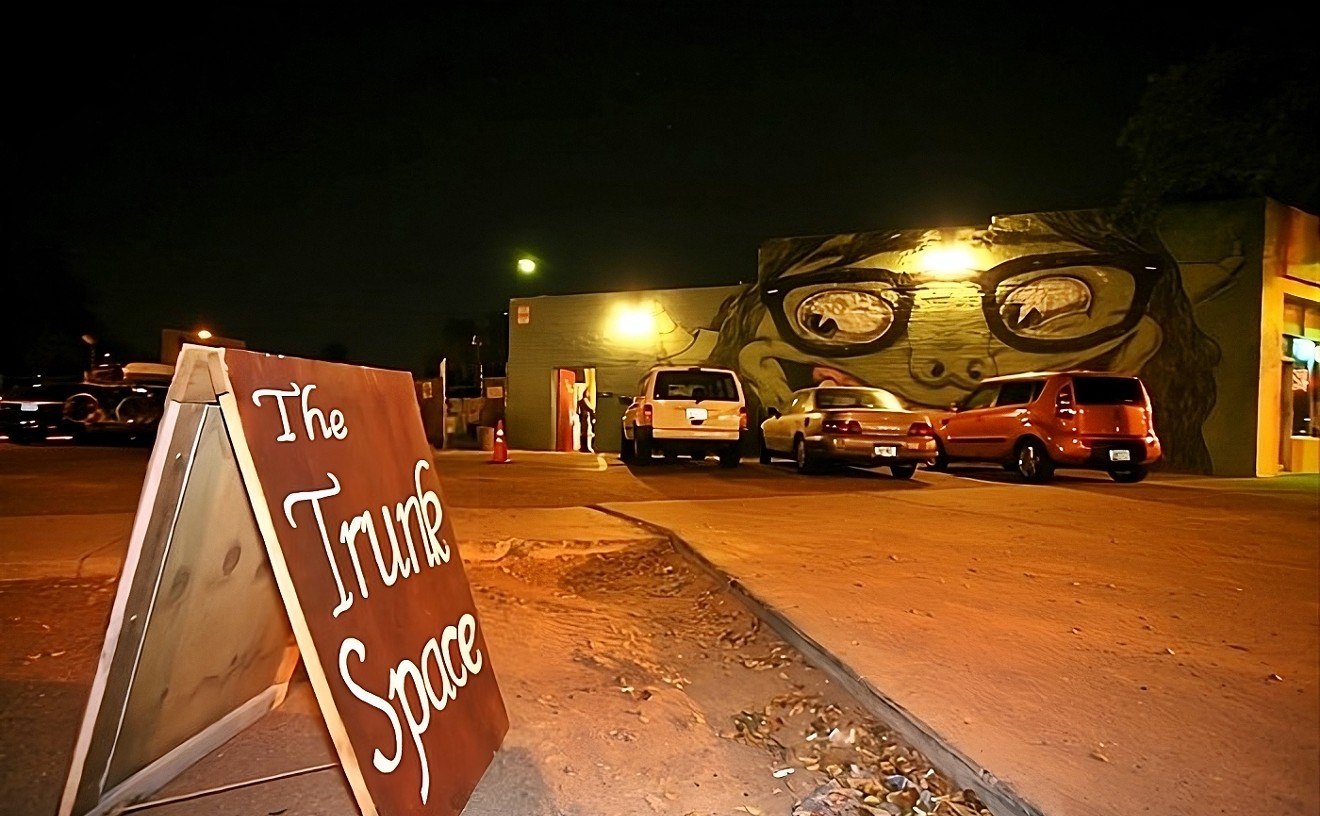Tally, whose 1977 play is a student production at Grand Canyon University, wrote Terra Nova when he was only 24 years old. It's based on Scott's diary and other records recovered by a search team, and focuses on Scott's realization that his patriotism and lust for fame will lead to his own and his team's demise.
Scott's been taught that true victory can come only through fair play. But not all players beyond England's sceptered isle agree to the rules, and once Scott ventures out into his snowy hell, he cannot believe that his playing-field ethics have put him at a disadvantage.
But Terra Nova also demonstrates that a lot of the world's achievements require men like Scott; without a certain amount of irrational determination driving courageous souls to drag a sled through blizzards, or to be launched into space, or to test a vaccine, we'd all be deprived of the results of scientific advancement.
But playwright Tally makes it clear that altruism can be a mask for self-aggrandizement. Act two begins with a celebratory banquet; Scott and his men dine smugly, secure in the knowledge they've fought the good fight. But the banquet is only a vision, and soon the set dissolves back into a white wasteland, where Scott and his party struggle to reach the South Pole.
The most vivid image in Terra Nova comes from the initial confrontation Scott has with his nemesis, the Norwegian Roald Amundsen. Scott sees his Antarctic conquest as pure man against nature, but Amundsen lacks such sentimentality.
Rather than have his men pull their own sleds with equipment and provisions, as Scott does, the Norwegian uses dogs that can later be killed for their meat. Scott's abhorrence of the tactic at first seems funny, then tragically naive. The dogs get Amundsen to the pole first, and he's back out before the blizzards start.
Scott's men are as indignant as the purists of yachting were when this country managed to recapture the America's Cup with a catamaran. Scott almost literally stamps his foot and cries, "It's not fair!"
When Evans, a member of the British team, cuts his hand and hides the wound until it's too late to send him back, the group's fate is sealed. Scott refuses to abandon the man, who is slowing them down, although that would preserve rations and keep them ahead of the weather. Scott's ethic is to give a man a fighting chance. The party carries the injured Evans along until he slips into delirium and runs out to his death in the snow. The time spent on the sick man and Scott's decision to keep him on have cost them all their lives.
Terra Nova tries to cover a lot of moral territory, and by the second act, the characters are more preachy than alive. Trotting out Scott's wife and his rival, Amundsen, as nagging, repetitive visions becomes tiresome. Each conversation ends the same, with Scott defending himself.
Terra Nova isn't the kind of play that is meant to move along at a clip, but in this production, the going is sometimes unbearably slow. By the end, Scott's journey is a plodding death march, and the production mirrored that deadly pace. Director Claude Pensis should get his actors on their marks a little quicker to prevent Terra Nova from dying before its characters do.
The play can be reduced to one of those life-raft-with-no-food-or-water situations, in which the audience is confronted with the question: When faced with life or death, what moral guidelines apply? Terra Nova leaves its conclusions up in the air.










